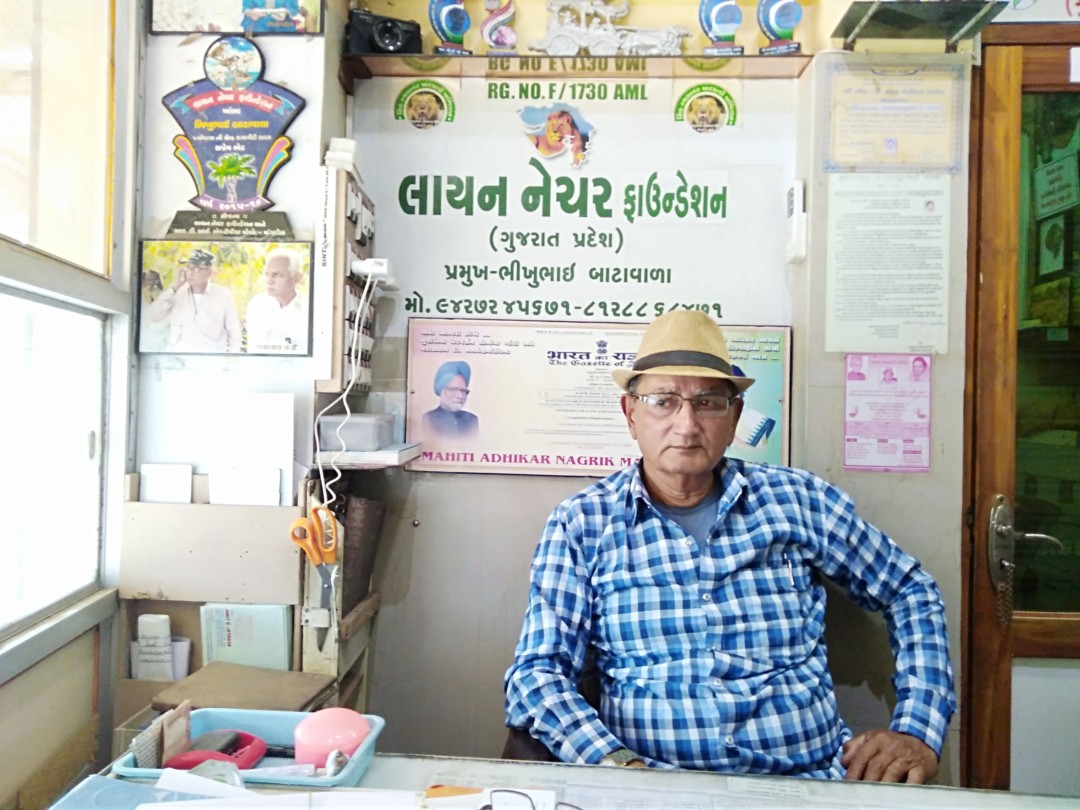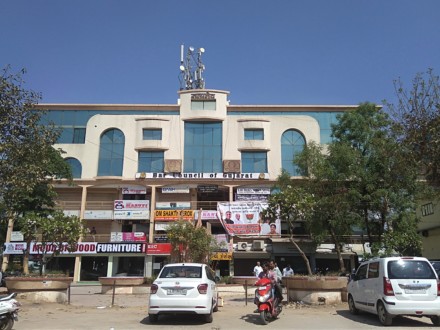20 July 2010
Gandhinagar, India
Amit Jethwa
Profession
Community
Motive
Environmental and indigenous activism
Political dissent


Adolfo Olivas


Ahmed Divela


Amit Jethwa


Artan Cuku


Babita Deokaran


Bayo Ohu


Berta Cáceres


Bhupendra Veera


Bill Kayong


Boris Nemtsov


Boško Buha


Chai Boonthonglek


Charl Kinnear


Chut Wutty


Chynybek Aliev


Cihan Hayirsevener


Daphne Caruana Galizia


Darío Fernández


Derk Wiersum


Deyda Hydara


Édgar Quintero


Edmore Ndou


Edwin Dagua


Federico Del Prete


Fernando Villavicencio


Gezahegn Gebremeskel


Gilles Cistac


Habibur Mondal


Igor Alexandrov


Jacob Juma


Ján Kuciak


Javier Valdez


Joannah Stutchbury


José Ángel Flores


Jules Koum Koum


Kem Ley


Luis Marroquín


Mahamudo Amurane


Marcelo Rivera


María Elena Ferral Hernández


Marielle Franco


Milan Pantić


Milan Vukelić


Muhammad Khan


Nelson García


Nihal Perera


Oliver Ivanović


Orel Sambrano


Perween Rahman


Peter R. de Vries


Rajendra Singh


Salim Kancil


Sandeep Sharma


Sikhosiphi Radebe


Slaviša Krunić


Soe Moe Tun


Victor Mabunda


Virgil Săhleanu


Wayne Lotter


Yuniol Ramírez


Zezico Guajajara
20 July 2010
Gandhinagar, India
Profession
Community
Motive
Environmental and indigenous activism
Political dissent
The newsflash appeared a little after 8.30 p.m. on 20 July 2010, as Bhikhalal Jethwa was watching television at his home in Khambha, a village in Gujarat’s Amreli district. The breaking news alert said his son Amit had been shot at outside the Gujarat High Court in Gandhinagar, the state capital. Bhikhalal and his wife quickly gathered themselves and headed out, reaching the city by 2 a.m. By then, Amit, an environmentalist and transparency activist, was dead.
Amit Jethwa, 33, a pharmacist-turned-activist was shot and killed outside the court by two men riding motorcycles. He was attacked while on his way to his car after meeting a lawyer friend, whose office was near the court. Just a day before the murder, Jethwa had confided in Anand Yagnik, another lawyer – and one who would eventually become an important witness in the murder case – that he feared for his life.
He suspected that one Dinu Bogha Solanki, a powerful politician and minister, whose illegal mining activities he had been opposing, would do him in. Solanki’s men had previously attacked and threatened Jethwa.
In the parched climes of Khambha, where Amit grew up along with a brother and a sister, he used to run the Gir Nature Youth Club. He fought assiduously to protect the local ecosystem, planting trees, opposing illegal construction in the sensitive coastal zone and crusading against wildlife poaching in the nearby Gir National Park. Through his activism, he had uncovered a lion-poaching gang and exposed corruption among forest officials.
But what earned him a spot in the crosshairs of Solanki, a parliamentarian with the Bharatiya Janata Party, was his campaign against Solanki’s alleged illegal limestone mining in prohibited areas.
‘Amit found out that Solanki did not have permission to operate in those areas,’ said Bhikhalal. ‘And, because of his activism, Solanki’s business was being affected.’ As a result, he routinely received threats, and after he was attacked one time in 2008, one of Solanki’s associates told Bhikhalal to restrain his son. ‘That was just the trailer, I was told,’ said Bhikhalal, referring to the non-fatal attack. ‘They said the whole movie still remained.’
Jethwa was trained as a pharmacist and worked in a local hospital where he exposed the illegal sale of medicines by one of the doctors. That was where he first ran up against Solanki, who, according to Bhikhalal, was connected to the hospital and had Jethwa transferred for speaking out about the illicit transactions.
From 2007, Jethwa began filing requests under India’s Right to Information Act, which allows citizens to petition government bodies for information. He had filed more than 1 000 queries, according to his father.
‘In 2009 the Act really started getting used by people, then this incident [Jethwa’s murder] occurred, after which people might have become afraid to raise their voices,’ said Vijay Nangesh, the lawyer friend whom Amit had met just before he was shot.
For a few years, Jethwa persevered, using the information he received to move the courts. Matters came to a head when he filed a public interest litigation in the Gujarat High Court seeking an end to illegal mining activities, particularly within the five-kilometre boundary of the Gir National Park. During these proceedings, Solanki’s name emerged. A few days later, two contract killers, allegedly hired by Solanki, killed him.
It is widely believed that the local police were heavily biased in favour of the accused. Yagnik, himself a long-time legal crusader against the Gujarat government, also alluded to the nexus between politicians, the state machinery and the mining mafias.
The police were dragging their feet in its investigation, Bhikhalal believed, so he petitioned the court to transfer the investigation to the federal agency, the Central Bureau of Investigation (CBI), which he hoped would be more impartial. The local police had named six people in their investigation, including Solanki’s nephew, but not the man widely believed to be the real culprit.
In November 2013, three years after the attack, Solanki was arrested by the CBI. A few months later, the CBI also claimed that Solanki was the main conspirator and had enlisted the help of policemen and criminals in this plot. When the trial took place, 105 of the 195 witnesses turned hostile. Solanki had been threatening and intimidating the witnesses, and had created a vitiated trial atmosphere. Following a petition in the High Court, a retrial was ordered. At one stage, in 2018, even the trial court judge reportedly sought police protection. The verdict of the fresh trial is now awaited.
After Jethwa’s death, Khambha village went into three days of mourning and solidarity. One resident, who did not wish to be named, recalled that thousands came out to march in support of Jethwa.

Jethwa’s father, Bhikhalal

Amit Jethwa had left this building after meeting a lawyer friend when he was shot by hired contract killers
The killing, it seems, was aimed to both silence Jethwa and spark broader fear in the activist community. But Pankti Jog, a ‘Right to Information’ activist, believes it achieved the opposite effect, and only strengthened citizens’ resolve towards achieving their right to transparency. The day after his death, about 200 people, mostly activists, gathered where Jethwa had been shot and made a resolution to sustain his fight. ‘The pressure on activists and the threats may be increasing but people have not stopped asking for information,’ said Jog. ‘We said we won’t let the issues die down.’ Activists continued to lobby on the same issues Jethwa had been advocating, she said, and they won a partial victory when the government began putting up online information on mining leases.
The law minister, while speaking at an event two months after Jethwa’s killing, named him and said that stern action should be taken against those who attack activists. Jethwa was also honoured posthumously for his transparency activism by various organizations.
Jethwa’s friends and colleagues, none of whom were willing to be named, remembered an environment-loving man killed for doing the work that was important to him. One childhood friend and colleague dissolved into tears when recalling his commitment to fighting the good fight. ‘This is a criminal state, and society and the law are blind,’ said the friend. ‘Without the general, what will the soldiers do?’
Meanwhile, Jethwa’s father, Bhikhalal, is trying to pursue his son’s work through a new organization he has established. Gujarat has seen several attacks on transparency activists, accounting for 12 of 82 such killings in India, as of 2019, according to the database maintained by the Commonwealth Human Rights Initiative.
‘All the families are silent except for me,’ said Bhikhalal. ‘I am the only one fighting against all these powerful people.’
February 2023 update
In 2019, a special CBI court found that Dinu Solanki and his nephew, alongside five other suspects, were guilty of Jetwa’s murder. The court reaffirmed that the killing was motivated by Jetwa’s exposé of Solanki’s illegal mining activities. However, in September 2021, the Gujarat High Court suspended Solanki’s sentence pending his appeal against the 2019 conviction. And in February 2023, the court suspended Solanki’s nephew’s sentence and granted him bail pending the hearing on his appeal.


15 October 2016
Mumbai, India
Bhupendra Veera


21 June 2016
Sarawak, Malaysia
Bill Kayong


11 February 2015
Klong Sai Pattana, Thailand
Chai Boonthonglek


26 April 2012
Koh Kong, Cambodia
Chut Wutty


5 May 2004
Bishkek, Kyrgyzstan
Chynybek Aliev


20 August 2000
Dhaka, Bangladesh
Habibur Mondal


10 July 2016
Phnom Penh, Cambodia
Kem Ley


16 October 2018
Haripur, Pakistan
Muhammad Khan


5 July 2013
Deraniyagala, Sri Lanka
Nihal Perera


13 March 2013
Karachi, Pakistan
Perween Rahman


19 June 2018
India
Rajendra Singh


26 September 2015
Selok Awar-Awar, East Java, Indonesia
Salim Kancil


24 March 2018
Bhind, Madhya Pradesh, India
Sandeep Sharma


13 December 2016
Monywa, Myanmar
Soe Moe Tun